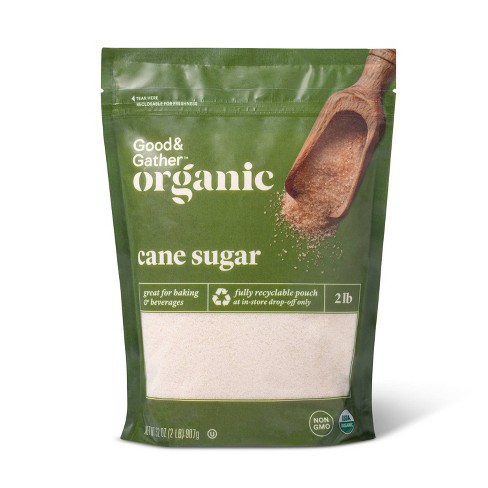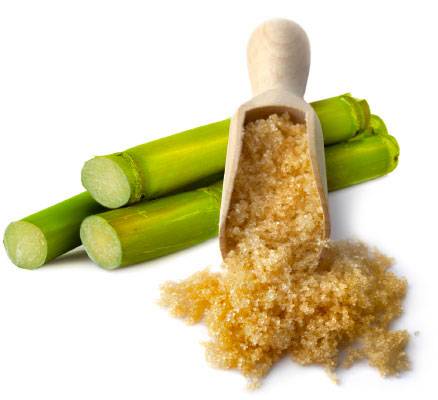Cane Sugar Processing: Conventional Techniques and Modern Innovations
Cane Sugar Processing: Conventional Techniques and Modern Innovations
Blog Article
An In-depth Overview of the Health and Economic Effects of Walking Stick Sugar Handling on Regional Areas
Walking cane sugar handling plays a pivotal role in forming the financial landscape of neighborhood neighborhoods, using work possibilities and boosting supplementary markets. The health and wellness implications linked with high sugar usage can not be overlooked, as they add to increasing rates of obesity and diabetes mellitus.
Financial Benefits of Cane Sugar Processing
Walking cane sugar processing offers considerable economic advantages that prolong past the instant farming industry. The growing and handling of sugarcane create countless task chances, from farming to manufacturing and distribution. This employment generation not just supports local economic climates however also fosters community development by supplying steady revenue resources for households.
Moreover, the sugar sector promotes supplementary services, including transport, tools supply, and product packaging services (Cane Sugar Processing). As these sectors expand, they add to a much more durable financial structure, boosting overall community strength. The export possibility of refined walking stick sugar additionally enhances economic advantages, positioning areas as competitive gamers in worldwide markets
Financial investment in modern-day processing facilities can lead to raised productivity and effectiveness, therefore decreasing waste and maximizing resource usage. This shift not only benefits the neighborhood economic climate but likewise supports sustainability initiatives by decreasing environmental impacts.
Additionally, the earnings generated from cane sugar handling can be reinvested in neighborhood facilities, education, and health care, promoting all natural neighborhood development. Generally, the financial advantages of walking cane sugar handling are complex, supplying a structure for enduring prosperity in agricultural areas.
Wellness Dangers Related To Sugar Intake
Extreme sugar intake presents significant wellness threats that warrant significant focus. High consumption of added sugars, especially from processed foods and drinks, has been linked to various health and wellness difficulties.
Moreover, high sugar consumption is related to heart disease. Raised blood sugar level levels can result in insulin resistance, a forerunner to different heart-related issues. In addition, sugar can have harmful results on oral wellness, resulting in cavities and periodontal condition, as bacteria in the mouth prosper on sugar, producing acids that deteriorate tooth enamel.
Moreover, arising research study recommends a possible link between high sugar consumption and psychological health and wellness disorders, such as clinical depression and anxiety. As communities come to grips with these health and wellness risks, it ends up being vital to advertise recognition and motivate much healthier dietary options. Resolving sugar usage is important not only for private wellness but likewise for the total health of neighborhood communities, emphasizing the requirement for extensive public wellness approaches.
Ecological Impacts of Sugar Production
Regularly forgotten in conversations regarding sugar's effects is the considerable environmental impact of sugar manufacturing. The cultivation of sugarcane commonly necessitates extensive land use, bring about logging, loss of biodiversity, and disturbance of local communities. The conversion of woodlands and wetlands into sugar haciendas can result in habitat damage, harmful many types and modifying environmental balance.
In addition, sugar production is resource-intensive, consuming considerable amounts of water for irrigation. This can cause exhaustion of local water resources, negatively impacting both agricultural techniques and neighborhood access to tidy water. Furthermore, the usage of chemical fertilizers and pesticides in sugarcane farming can contribute to soil destruction and water contamination, as drainage from these chemicals gets in close-by rivers and lakes, affecting water life and human health.
The environmental footprint includes the handling phase, where energy intake and waste generation further intensify eco-friendly issues. Air air pollution from burning sugarcane areas, along with greenhouse gas emissions, add to climate change. Thus, the environmental ramifications of sugar production warrant severe factor to consider, urging stakeholders to take on even more lasting methods to alleviate these damaging impacts on neighborhood ecological communities and communities.
Work Creation and Community Advancement
The ecological difficulties postured by sugar manufacturing are commonly counteracted by its possibility for economic advantages, especially in work production and neighborhood development. The walking stick sugar sector offers as a considerable source of employment in lots of country locations, offering jobs throughout various skill levels, from agricultural labor to processing and distribution duties. This work not only sustains private households but also adds to the total financial vigor of neighborhood neighborhoods.
Additionally, the establishment of sugar processing facilities boosts supplementary services, such as transportation services, read this devices supply, and upkeep companies. As these businesses thrive, they create additional jobs and boost neighborhood economic situations. The earnings created from the sugar industry likewise leads to increased tax incomes, which can be reinvested right into community solutions such as healthcare, infrastructure, and education development.
In addition, the sugar market commonly takes part in area development efforts, such as sustaining local institutions and health programs, thereby boosting the lifestyle for homeowners. By cultivating strong community connections and promoting economic growth, the cane sugar handling sector plays a vital function in uplifting local populations, making it an essential part of lasting growth techniques in sugar-producing regions.
Balancing Wellness and Economic Development
In navigating the complexities of walking stick sugar processing, an essential challenge depends on stabilizing health and wellness factors to consider with economic growth. The sugar industry significantly adds to regional economic climates by creating jobs, promoting related sectors, and raising tax obligation incomes. Nonetheless, the health and wellness ramifications connected with extreme sugar intake can lead to persistent diseases such as weight problems, diabetes, and cardiovascular problems, which can burden public health and wellness systems and lessen labor force efficiency.

Moreover, regulatory structures can play a crucial duty in directing market techniques in the direction of more sustainable and health-conscious approaches. By fostering partnership between federal government bodies, health organizations, and the sugar market, neighborhoods this content can navigate the dichotomy of health and wellness and financial development, making certain that the benefits of cane sugar processing are equitably shared while focusing on public health.
Conclusion
Finally, the processing of cane sugar presents both significant economic benefits and significant health and wellness dangers for regional areas. While it cultivates work development and boosts local development, the associated health concerns, particularly pertaining to excessive weight and diabetic issues, require a cautious balancing act. our website By promoting liable consumption and investing in area education and lasting methods, it is possible to make the most of economic advantages while decreasing negative health and wellness effects, thereby making sure a much healthier future for neighborhood populations.
In addition, sugar can have harmful impacts on dental health and wellness, resulting in tooth cavities and periodontal disease, as microorganisms in the mouth flourish on sugar, creating acids that erode tooth enamel.
Addressing sugar intake is crucial not just for specific health and wellness but additionally for the general wellness of local areas, emphasizing the demand for thorough public wellness techniques.
Frequently ignored in discussions concerning sugar's effects is the significant ecological effect of sugar manufacturing. The wellness ramifications associated with extreme sugar consumption can lead to persistent illness such as weight problems, diabetes, and cardio issues, which can worry public wellness systems and decrease labor force productivity.

Report this page